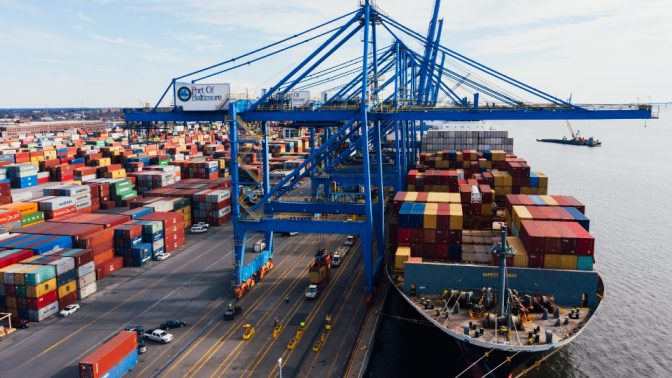The Maritime sector has once again been missing from the sector that contributed to the nation’s Gross Domestic Product (GDP) in the third quarter of 2024.
In a press statement by the Special Adviser to the President on Media and Public Communications, Sunday Dare, on Monday, President Tinubu mentioned Agriculture, ICT, trade, manufacturing, crude oil, finance, insurance and real estate as top contributing sectors to GDP in Q3 2024.
The National Bureau of Statistics (NBS) said that Nigeria’s GDP grew by 3.46%, compared to the 3.19% growth recorded in the second quarter.
“Agriculture, 28.65%, ICT 16.35%, Trade 14.78%, Manufacturing 8.21%, Crude Oil 5.57%, Finance & Insurance 5.51% and Real Estate 5.43%.
“The latest GDP growth in the third quarter is driven by key sectors such as Agriculture, Transport, Education, Health, Real Estate, Finance and Insurance, ICT, Trade, and Manufacturing.”
Tbe President’s spokesman further stated that the GDP growth showed President Tinubu’s quest for a more robust boost in the economy and, by extension, a better standard of living for all Nigerians is on course.
“The 3.46% growth indicates Nigeria is recovering from the reforms’ unintended effects.
“President Tinubu said his administration has not and will never forget his promise of a $1 trillion economy by 2030.”
He assured that once the economy is rebased by early 2025 to capture its dynamism and record significant changes that have occurred in different sectors, the country will be on its way to shared prosperity.
However, it could be recalled that Marítime experts have bemoaned the improper capturing of the activities of the maritime sector and its contributions to the national economy.
Speaking recently, the Chief Executive Officer, Centre for the Promotion of Private Enterprise (CPPE), Dr Muda Yusuf, said the maritime sector of the economy is a very important sector in the international trade process.
“The maritime sector of the economy is a very important sector in the international trade process, playing a very critical role in our import and export trade. It generates appreciable revenue and creates a lot of jobs. It is very critical to the supply chain of the Nigerian economy.”
According to Yusuf, there is evidently a gross under-reporting of the activities of the maritime sector by the National Bureau of Statistics (NBS).

